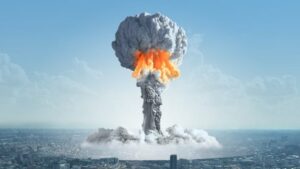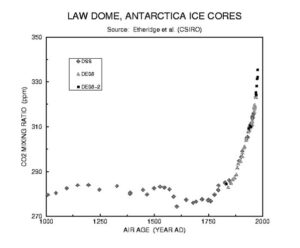The age of humanity has brought upon a force that nature has never seen before in history, possessing the power to destroy and eradicate life on Earth as we know it 55 times over with nukes (Tiankan 2023). With such immense power over Earth, what will be humanities legacy over Earth when we are gone in the future? Geologist have even proposed a new epoch dedicated to humanity called the Anthropocene, but what legacy does the Anthropocene contain (Zalasiewicz 2016)?

Perhaps the most noticeable legacy humanity has are the structures we’ve built and the landscape we’ve altered. However, that is actually not the case in the grand scheme of things. Geography shifts and buildings decay, but the materials humanity has introduced into this world are something never seen before in the face of the Earth. These materials are obvious at first, plastics and other synthetics are materials that is simply impossible for nature to produce alone.
The next legacy would be the atmosphere that we have left behind. The rise of carbon dioxide levels modern humanity has caused would actually be observed not through the atmosphere, but through ice caps and bubbles trapped in the ice in Antarctica (Zalasiewicz 2016). From there, humanities has made its mark permanent in the Earth’s ice record.

Finally, as first mentioned in the introduction, a nuclear bomb is one of humanities most powerful tool when it comes to affecting the global ecology of Earth. Unfortunately, some of the radioactive materials used to create the bomb posses a ridiculously long half-life. With some needing to be stored safely for a mind whooping 1 million years (Christine 2019). Needless to say, if hypothetically speaking all of humanity would suddenly disappear tomorrow, it’s safe to say that we have made our mark in this word for better or for worse.
Source
Christine, R 2019, ‘The staggering timescale of nuclear waste disposal’, Forbes, 26 November 2019, viewed 19 March 2024, <https://www.forbes.com/sites/christinero/2019/11/26/the-staggering-timescales-of-nuclear-waste-disposal/?sh=7883449429cf>.
Tiankan, Z 2023, ‘Chinese Academic: Humanity could destroy itself with nuclear weapons’, ThinkChina, 7 November 2023, viewed 19 March 2024, <https://www.thinkchina.sg/chinese-academic-humanity-could-destroy-itself-nuclear-weapons>.
Zalasiewicz, J 2016, ‘The permanent, unmistakable mark human beings have left on planet Earth’ Scientific American, 1 September 2016, viewed 19 March 2023, <https://www.scientificamerican.com/article/the-permanent-unmistakable-mark-human-beings-have-left-on-planet-earth/>.

What an insightful and interesting blog! Do you think we can work to change the planet for the better? If so, how can we strive for it and what measures should we take?
We should definitely be more aware of out impacts in the long term. But people aren’t exactly keen on their legacy when they are impoverished and their survival is uncertain, so there’s that. The best we can do is to ensure everyone is able to live with enough sustenance to care about their future.